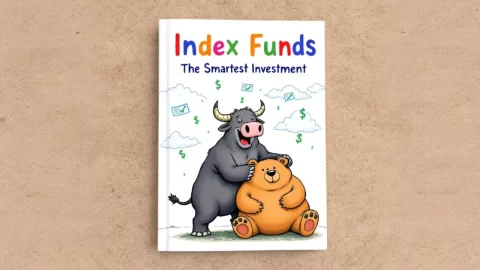The path to wealth is often shrouded in mystery. While there’s no single “get-rich-quick” scheme, certain investment secrets are consistently employed by the wealthy to build and grow their fortunes. These strategies, often overlooked by the average investor, can significantly impact your financial future. Let’s delve into some of these powerful investment secrets.
1. The Power of Long-Term Investing
The wealthy understand the importance of patience and long-term perspective when it comes to investing. They focus on building wealth over decades, not days or weeks. Short-term market fluctuations don’t deter them; they ride out the inevitable market downturns, knowing that history has consistently shown that the stock market tends to rise over the long run.
Key takeaway: Avoid the temptation of chasing quick profits. Instead, embrace a long-term investment horizon and focus on building a diversified portfolio that can weather market storms.
2. The Importance of Diversification
Diversification is not just a buzzword; it’s a fundamental principle of successful investing. The wealthy don’t put all their eggs in one basket. They diversify their portfolios across different asset classes, such as stocks, bonds, real estate, and commodities. This helps to mitigate risk and reduce the impact of any single investment’s underperformance.
Key takeaway: Diversify your investments across different asset classes, sectors, and geographies to reduce overall portfolio risk.
3. The Magic of Compounding
Compounding is arguably the most powerful force in finance. Albert Einstein famously called it the “eighth wonder of the world.” Compounding refers to the process of earning returns on your investments and then reinvesting those returns, which in turn generate even more returns. Over time, the effect of compounding can be truly remarkable.
Key takeaway: Start investing early and consistently. The earlier you start, the longer your money has to grow through the power of compounding.
4. The Value of Continuous Learning
The investment landscape is constantly evolving. Successful investors are lifelong learners who continuously educate themselves about new investment opportunities, market trends, and financial strategies. They stay informed by reading financial news, attending investment seminars, and consulting with financial advisors.
Key takeaway: Cultivate a habit of continuous learning. Stay informed about market trends, read financial publications, and attend investment seminars to enhance your investment knowledge.
5. The Discipline of Emotional Control
Investing can be an emotional rollercoaster. Fear and greed can often cloud judgment and lead to poor investment decisions. The wealthy, however, maintain emotional discipline. They stick to their investment plan, avoid impulsive decisions, and don’t panic during market downturns.
Key takeaway: Develop emotional discipline and avoid making investment decisions based on fear or greed. Stick to your long-term investment plan and ride out market volatility.
6. The Power of Dollar-Cost Averaging
Dollar-cost averaging is a simple yet effective investment strategy. It involves investing a fixed amount of money at regular intervals, regardless of market conditions. This strategy helps to smooth out the impact of market volatility and can be particularly beneficial for long-term investors.
Key takeaway: Consider implementing a dollar-cost averaging strategy to reduce the impact of market timing on your investments.
7. The Importance of Tax Efficiency
Taxes can significantly impact your investment returns. The wealthy are highly tax-conscious and employ strategies to minimize their tax burden. These strategies may include utilizing tax-advantaged accounts like 401(k)s and IRAs, harvesting tax losses, and working with a qualified tax advisor.
Key takeaway: Explore tax-efficient investment strategies to maximize your after-tax returns.
8. The Role of Financial Planning
Financial planning is not just about investing; it encompasses all aspects of your financial life. The wealthy work with financial advisors to develop comprehensive financial plans that address their short-term and long-term goals, including retirement planning, estate planning, and risk management.
Key takeaway: Develop a comprehensive financial plan that addresses your unique financial goals and circumstances.
9. The Importance of Risk Management
Risk management is a crucial component of any successful investment strategy. The wealthy understand the importance of assessing and mitigating potential risks. They carefully evaluate the risk-reward profile of each investment opportunity and implement strategies to protect their portfolios from unforeseen events.
Key takeaway: Conduct thorough due diligence on any investment opportunity and implement appropriate risk management strategies to protect your capital.
Conclusion
By embracing these investment secrets, you can significantly increase your chances of achieving your financial goals. Remember, building wealth takes time, discipline, and a long-term perspective. Focus on long-term investing, diversify your portfolio, and cultivate a habit of continuous learning. By consistently applying these principles, you can unlock your investment potential and build a strong financial future.
FAQs
1. What are the best investment options for beginners?
- Index funds: Offer low-cost exposure to the overall market.
- Exchange-traded funds (ETFs): Provide diversified exposure to various asset classes.
- High-yield savings accounts: Offer a safe and stable return for emergency funds.
2. How can I improve my financial literacy?
- Read financial books and articles.
- Attend investment seminars and workshops.
- Listen to financial podcasts and interviews.
- Seek advice from a qualified financial advisor.
3. What are the common investment mistakes to avoid?
- Trying to time the market: Trying to predict market movements is extremely difficult and often leads to losses.
- Overtrading: Frequent trading can increase transaction costs and erode returns.
- Investing based on emotions: Fear and greed can lead to poor investment decisions.
- Not diversifying your portfolio: Putting all your eggs in one basket increases your risk.
4. How can I reduce my investment risk?
- Diversify your portfolio: Spread your investments across different asset classes, sectors, and geographies.
- Invest for the long term: Ride out market fluctuations and focus on long-term growth.
- Use stop-loss orders: Limit potential losses by setting automatic sell orders at a predetermined price.
- Conduct thorough due diligence: Research any investment opportunity carefully before making a decision.
5. When should I start investing?
The sooner you start investing, the more time your money has to grow through the power of compounding. However, it’s never too late to start investing.
This article provides a starting point for your investment journey. Remember that investing involves risks, and there are no guarantees of future returns. It is essential to conduct thorough research and consult with a qualified financial advisor before making any investment decisions.






